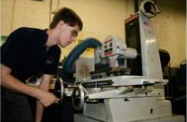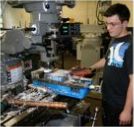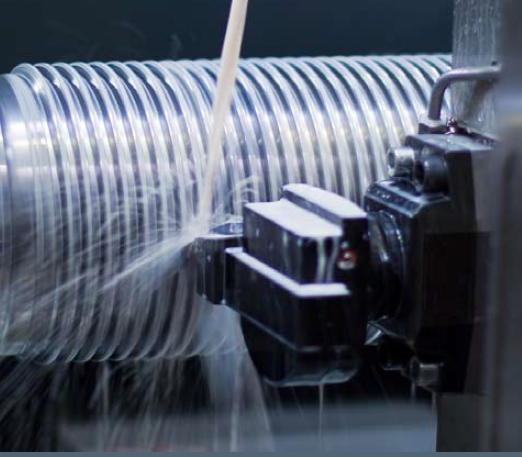-
Advanced Manufacturing
Mr. Meyers, Advanced Manufacturing Instructor
Advanced manufacturing is the use of innovative technology to improve products or
processes, with the relevant technology being described as advanced, innovative, or
cutting edge. Advanced manufacturing industries increasingly integrate new
innovative technologies in both products and processes. The rate
of technology adoption and the ability to use that technology to remain competitive and
add value to define the advanced manufacturing sector.
A 2010 survey of advanced manufacturing definitions by the White House states: "A
concise definition of advanced manufacturing offered by some is manufacturing that
entails the rapid transfer of science and technology (S&T) into manufacturing products
and processes."
Our graduates go on to careers as machinists, CNC programmers, robotics specialists,
and engineers just to name a few. The average Machinist salary in Pittsburgh, PA is
$43,749 as of September 25, 2020, but the range typically falls between $38,905 and
$50,419. Salary ranges can vary widely depending on many important factors,
including education, certifications, additional skills, the number of years you have
spent in your profession. Students of the Advanced Manufacturing program at
Northern Westmoreland Career and Technology receive NIMS credentials Each NIMS
credential represents a collection of skills and knowledge, and a person that earns one
has demonstrated competency in that occupational area. As that person earns more of
these stackable credentials, they show that they have an array of skills that have been
verified against an industry written standard.
Machinists set up, maintain, and operate computer and mechanically operated
machines used to create parts for the manufacturing process. These positions require
training, either in apprenticeship programs, vocational schools, or community or
technical colleges. These employees also receive lots of on-the-job training. Advanced
manufacturing centers upon improving the performance of industry through the
innovative application of technologies, processes and methods to product design and
production.
Possible
Occupations:
· CNC Operator
· CNC Programmer
· Tool & Die Designer
· Tool & Die Maker
· Precision Grinder
· Precision Machinist
· Quality Control
· CAD Programmers
· Production Supervisor
· Manufacturing Engineers
· Download BrochureAcademic
Requirements:
· Algebra I
· Algebra II
· Geometry
· College Prep English
· Science Curricular
Curricular
Components:
· Engine Lathes
· Milling Machines
· Surface Grinders
· Saws & Drill Presses
· CNC Programming & Operation
· Blueprint Reading
· Machine Maintenance
· Safety

Fact Check
· People interested in becoming machinists should be mechanically inclined, have good problem-solving abilities, be able to work independently, and be able to do highly accurate work that requires concentration.
· Employment of CNC operators is expected to increase by 7 percent, which is about as fast as the average for all occupations.
· Because most machinists train in CNC programming, they may write basic programs themselves and often modify programs in response to problems encountered during test runs. Modifications, called offsets, not only fix problems, but they also improve efficiency by reducing manufacturing time and tool wear.
· Median hourly wages of machinists were $17.41 in May 2008. The middle 50 percent earned between $13.66 and $21.85.

